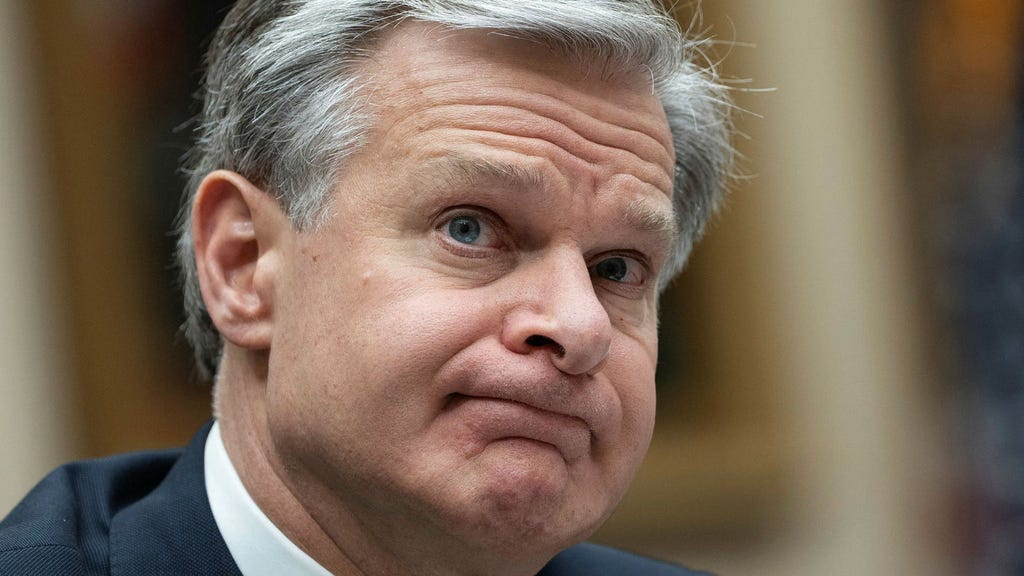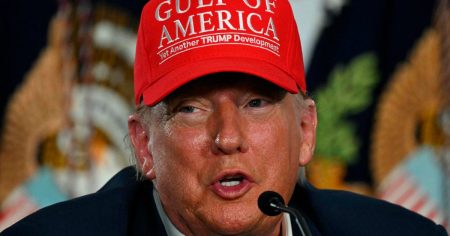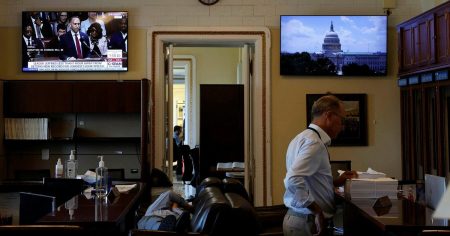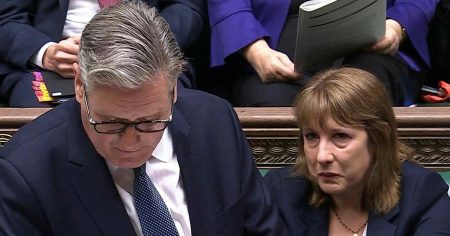Christopher Wray’s departure from the FBI, though announced as a resignation, effectively amounts to a dismissal orchestrated by former and now returning President Donald Trump. Weeks prior, Trump had publicly declared his intention to nominate Kash Patel, a lawyer and staunch loyalist, as Wray’s replacement, signaling his clear dissatisfaction with the current FBI director. This discontent stems primarily from the FBI’s investigation into Trump’s handling of classified documents, culminating in the search of his Mar-a-Lago residence. This action, viewed by Trump and his supporters as a politically motivated attack, further fueled the already strained relationship between the former president and the bureau.
The Mar-a-Lago search ignited a firestorm of criticism within conservative circles, with some media outlets even suggesting it contributed to Melania Trump’s decision to decline a White House invitation. Adding to the tension was an incident at a Pennsylvania rally where Trump claimed to have been targeted in an assassination attempt. Wray’s congressional testimony, in which he speculated that the object that struck Trump was a shard of glass rather than a bullet, further inflamed Republican ire and solidified Trump’s resolve to replace him. This pattern mirrors Trump’s previous dismissal of FBI Director James Comey during his first term, demonstrating a disregard for established norms and a tendency to politicize appointments and dismissals within the agency.
Wray’s preemptive departure, while seemingly a capitulation to Trump’s pressure, could be a strategic move. By resigning, Wray potentially complicates Trump’s plan to swiftly install Patel as his successor. Senate confirmation is typically required for the FBI director position. While a president can bypass this process by appointing an acting director, specific conditions apply. The acting director must either be already Senate-confirmed or hold a senior position within the FBI. Patel fulfills neither of these requirements, making his immediate appointment problematic. Wray’s resignation, therefore, might be a calculated maneuver to delay or even thwart Patel’s ascension, forcing Trump to navigate the Senate confirmation process, a potentially lengthy and arduous undertaking.
This complex situation highlights the inherent dangers of politicizing law enforcement agencies. Trump’s open criticism of Wray and his intent to replace him with a loyalist raise concerns about the FBI’s independence and its vulnerability to political influence. Wray’s departure, regardless of its motivations, underscores the precarious position of agency heads under an administration that prioritizes loyalty over established protocols. The ensuing power vacuum and the potential appointment of a partisan figure like Patel could significantly impact the FBI’s operations and its ability to function impartially.
The potential appointment of Kash Patel raises further concerns about the future direction of the FBI. Patel’s close ties to Trump and his involvement in past controversies, including the dissemination of classified information, raise questions about his impartiality and suitability for the role. His nomination would likely face significant opposition in the Senate, further politicizing the confirmation process and potentially jeopardizing the FBI’s reputation. The ensuing battle over Patel’s confirmation could further divide the country and erode public trust in the institution.
Ultimately, the saga surrounding Wray’s departure and Patel’s potential appointment underscores the importance of preserving the independence of law enforcement agencies. The politicization of these institutions threatens the rule of law and undermines their ability to function effectively. The Senate’s role in confirming the next FBI director will be crucial in ensuring that the agency remains free from political interference and continues to uphold its mission of protecting the American people. The coming months will be critical in determining the future of the FBI and its ability to maintain its integrity in the face of political pressure.














